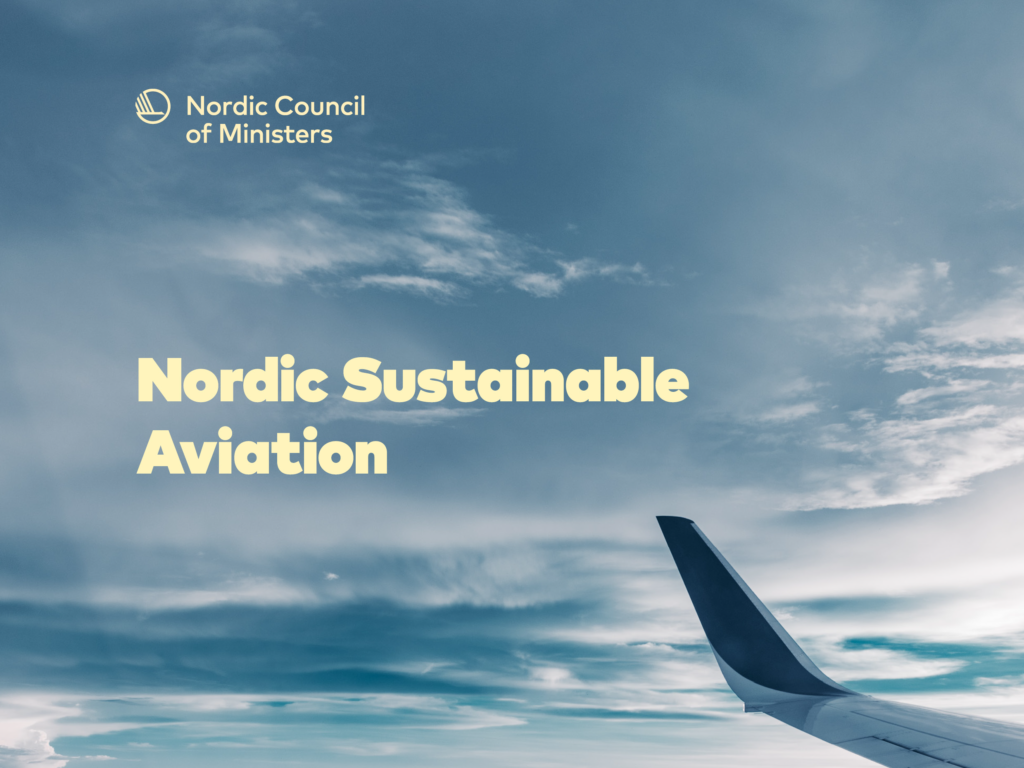
Common initiatives can make Nordic aviation significantly more sustainable
This is the conclusion of the report “Nordic Sustainable Aviation” - prepared by the Institute of Transport Economics and commissioned by Nordic Energy Research. The report explores challenges and opportunities…

This is the conclusion of the report “Nordic Sustainable Aviation” – prepared by the Institute of Transport Economics and commissioned by Nordic Energy Research.
The report explores challenges and opportunities for a strengthened Nordic cooperation on increasing the sustainability of aviation by 2030, possibly with a knock-on effect in the European aviation industry. The report presents current policy frameworks in each Nordic country and outlines five areas with potential for a common Nordic political approach: 1) a fuel blending mandate, 2) CO2 equivalent reduction requirements, 3) establishing a Sustainable Aviation Fuel-fund, 4) fuel taxes and 5) passenger taxes.
Renewable fuel and passenger taxes
The report concludes that the Nordic region can make air traffic more sustainable by collaborating on a funding mechanism for renewable fuels financed by common passenger taxes.
“The report emphasizes the need to develop the market for renewable aviation fuels. It recommends gradually increasing the Nordic demand for sustainable aviation fuels and thereby increasing production. Another important recommendation is joint Nordic green taxes on airline tickets to make passengers pay for the cost premium on green fuels,” explains Klaus Skytte, director of Nordic Energy Research,” and continues;
“The report also highlights the need for more knowledge, and it recommends a joint Nordic programme for research and development on sustainable aviation, including advanced bio-fuels and electro-fuels, but also the potentials of electric propulsion”.
The recommended measures can help in bridging the gap between fossil and renewable aviation fuel, but also prevent the carbon leakage that occurs – when aircrafts refuel in countries without, or with very low fuel taxes.
Read and Download the report “Nordic Sustainable Aviation” here
New reality
The researchers behind the report recognise that the COVID-19 outbreak has led to a significant decline in air traffic, temporary change of policy frameworks and an aviation industry currently in crisis.
However, the researchers still hope that the Nordic politicians will use the report for a common green and sustainable vision for air traffic.
Niels Buus Kristensen – Chief Research Economist at the Institute of Transport Economics and one of the three researchers who prepared the report – points out that;
“2020 and the corona pandemic have created a new reality which was outside the scope of our report, but we acknowledge that it has at least temporarily changed the aviation industry, and that the current pandemic might affect the timing of implementing sustainability initiatives.
When aviation returns to normal on the other side of the COVID-19, it is our hope that Nordic politicians will use the report to be inspired by the recommendations on how to promote a Nordic market for renewable fuels, jointly find adequate ways to finance the additional costs of more sustainable aviation in a Nordic framework, and that the ideal policy measure, which is a common CO2-tax on jet fuel, should be addressed at EU level and in global bodies such as ICAO and UNFCCC”.
